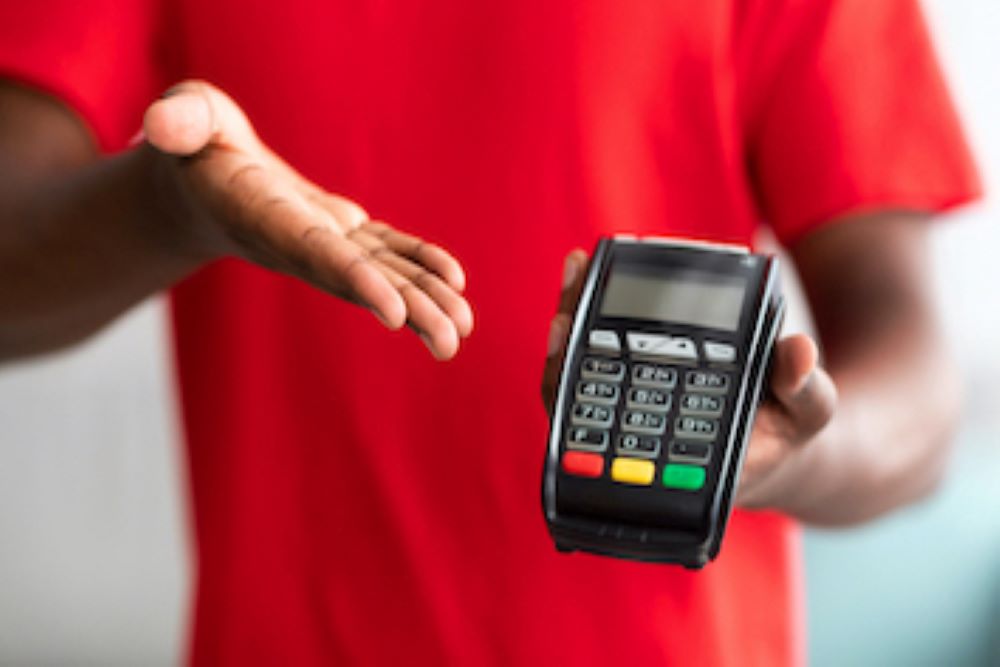The Point of Sale (POS) business in Nigeria has gained significant traction as it provides convenient banking services to people, especially in areas where bank branches and ATMs are scarce.
As a POS business owner, knowing how to calculate profit is crucial. This calculation involves knowing the charges imposed by banks on POS agents and how you as an agent can make an income.
To begin, we’ll need to make sure that you understand the basic concept of revenue and cost in the POS business. Then, go deeper to demystify the key formulas and strategies to find out your POS business’s profit now and in the future.
Understanding Revenue and Costs in POS Business
POS agents serve as intermediaries between banks and customers, facilitating transactions such as cash withdrawals, deposits, transfers, and bill payments.
For every transaction, banks or other financial entities impose certain charges on the agents, which are crucial to consider when calculating profit.
One of the leading POS service providers in Nigeria, Moniepoint, charges 0.5% on withdrawals below 20,000 NGN.
To illustrate, if a customer withdraws 10,000 NGN, Moniepoint charges 0.5% of this amount, equating to 50 NGN. For the POS agent to make a profit, they typically charge a fee slightly higher than the bank’s charge.
 |
|
| An image representation of how much you can make as a pos attendant |
For instance, an agent might charge the customer 200 NGN for the same 10,000 NGN withdrawal, earning a gross profit of 199 NGN per transaction.
However, the calculation of profit in the POS business extends beyond just the transaction charges. It also involves considering the operational costs such as rent, salaries (of applicable), utility bills, and maintenance of POS devices.
To arrive at a net profit, these expenses must be subtracted from the total income generated from transaction fees.
Having understood this, let’s dive deeper into the core purpose of this article which is calculating profit in POS business in Nigeria.
How to Calculate Profit in POS Business
Here’s a step-by-step approach to help you determine your profit:
1. Determine Your Revenue
Revenue in a POS business typically comes from transaction fees charged to customers. This can include fees charged to customers for each transaction. This is usually a percentage of the transaction amount or a flat fee.
Revenue can also come from any additional services provided e.g., bill payments, airtime sales and more.
Example Calculation:
If you charge a 1% fee on transactions and you process ₦1,000,000 in a month, your revenue from transaction fees would be calculated as:
Transaction Fees = ₦100,000 × 0.1 = ₦10,000
This implies that you would be earning N10,000 for every N100,000 that you process. The fun path is that you can earn more than this as POS charges more that 0.1% on every transaction.
2. Calculate Your Expenses
Expenses in a POS business can include fixed costs such as rents, salaries (if you have someone working for you), Utilities (Electricity, internet, etc.) and more.
It can also include variable cost such as Commission to Banks/Payment Processors, costs for maintaining POS terminals, paper for receipts, and many others which would arise as time goes on.
Example Calculation:
Assume the following monthly expenses:
- Rent: ₦10,000
- Salaries: ₦20,000 (one employee)
- Utilities: ₦5,000
Bank Commission: 0.5% of transaction volume (₦100,000 × 0.05 = ₦5,000)
Maintenance & Supplies: ₦2,000
Total Expenses = ₦10,000 + ₦20,000 + ₦5,000 + ₦5,000 + ₦2,000 = ₦42,000
With this calculation, the total expense you can incur for a month is N42,000.
3. Calculating Profit
Profit is calculated by subtracting total expenses from total revenue.
Profit = Total Revenue − Total Expenses
Using the example figures we got:
Profit = ₦10,000 − ₦42,000 = −₦32,000
In this example, the business would be operating at a loss. To be profitable, you would need to increase revenue or decrease expenses. This scenario is one of the traps POS agents fall into when starting the business.
4. Break-Even Analysis
To understand how much revenue you need to break even (i.e., have zero profit or loss), you can use the break-even point formula:
Break-Even Revenue = Total Fixed Costs / 1 – Variable Cost Percentage
Using the previous example:
Fixed Costs = ₦10,000 (Rent) + ₦20,000 (Salaries) + ₦5,000 (Utilities) = ₦35,000
Variable Cost Percentage = 0.5% (Bank Commission)
Break-Even Revenue = ₦35,000 / 1−0.05 = ₦35,175
This means you need at least ₦35,175 in revenue to cover your expenses and break even.
Tips for Improving Profitability in POS Business
- Attract more customers to increase the total transaction amount you process monthly.
- Ensure your fees are competitive but sufficient to cover costs.
- Look for ways to reduce your expenses, such as negotiating better rent or utility rates.
- Offer additional services like bill payments, airtime sales, etc., to increase revenue streams.
Conclusion
Hope this was a helpful explainer article. And for the record, note that most POS operators usually charge a 2% fee depending on the amount being withdrawn and also your POS provider. You might want to see how much each Financial Business charges their POS agent per transaction.
So for every N10,000 transaction carried out, you earn a whooping N200 minus your providers charge of 0.5% which equates to a profit of N199.
By adding these costs to your prices, you can figure out your net profit and keep a good ROI.
Keeping an eye on machine costs and sales data, managing your stock well, and looking at profit by product and location helps you make smart choices.
This way, you can improve your business and make more money. As the POS industry keeps changing, learning how to calculate profits will help you grow and succeed in the Nigerian market.
FAQ
Below are some frequently asked questions.
What are the key revenue sources for a POS business in Nigeria?
A POS business in Nigeria makes money from selling products, offering services, renting out equipment, and through ads and promotions.
What are the major expenses for a POS business in Nigeria?
Expenses for a POS business include the cost of goods sold, rent, and staff salaries. They also include supplies, hardware, software, utilities, marketing, insurance, and fixing things.
How can you accurately track daily sales and transactions in a POS business?
To track sales and transactions well, use POS software for each sale. Take Z-reads often, log cash and credit sales, and record refunds and discounts. Keep track of tips and do daily checks to make sure everything adds up.
Why is effective inventory management crucial for a profitable POS operation?
Good inventory management is key for a POS business to make money. It means having a system for tracking stock, doing regular stock checks, and keeping track of what comes in. Using LIFO accounting, watching for stockouts, and ordering just in time helps too.
How can you calculate profit margin by product in a POS business?
To figure out profit margin by product, first find out the revenue and how many units you sold. Then, calculate the cost of goods sold and the profit margin percentage. This helps you see which products make the most money and which don’t.
Why is it important to analyze profitability by location for a multi-location POS business?
Looking at profitability by location helps you understand how your business is doing in different places. It lets you see which stores are doing great and which ones need work. This info helps you make smart choices about inventory, prices, and costs across your POS network.




